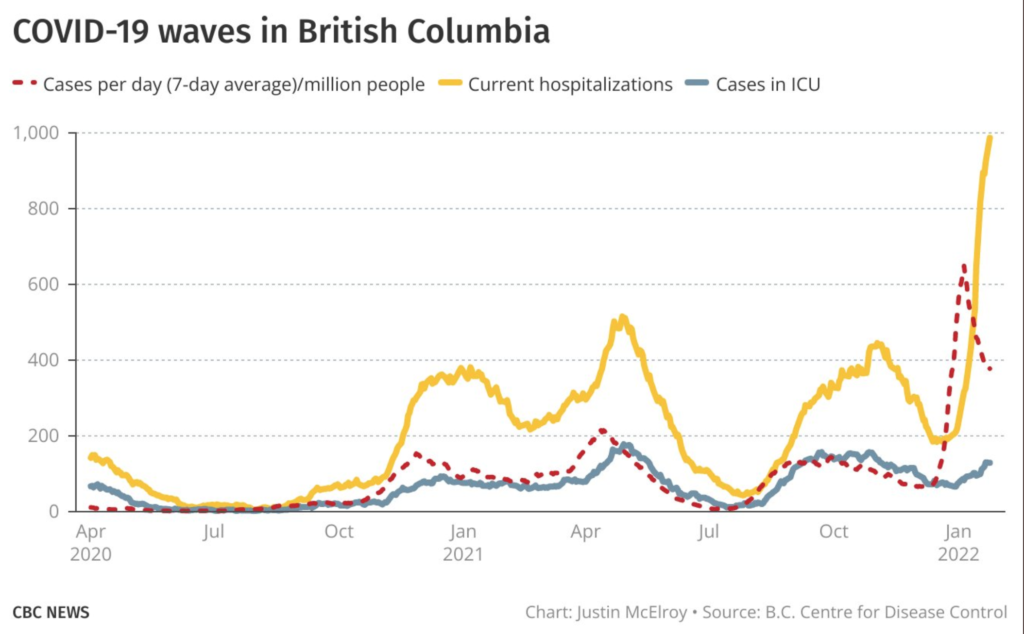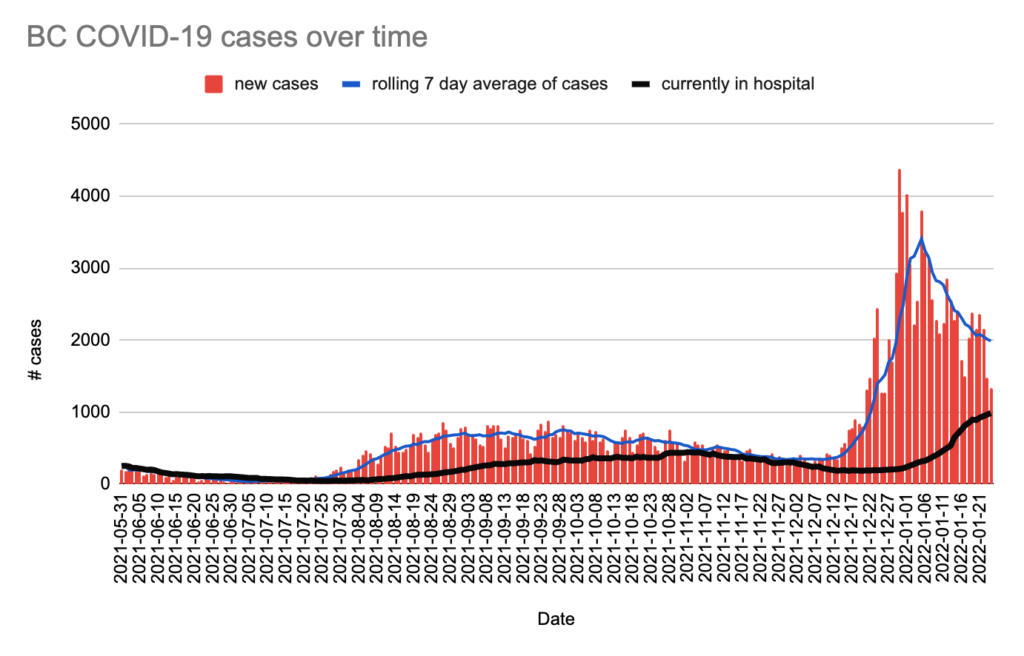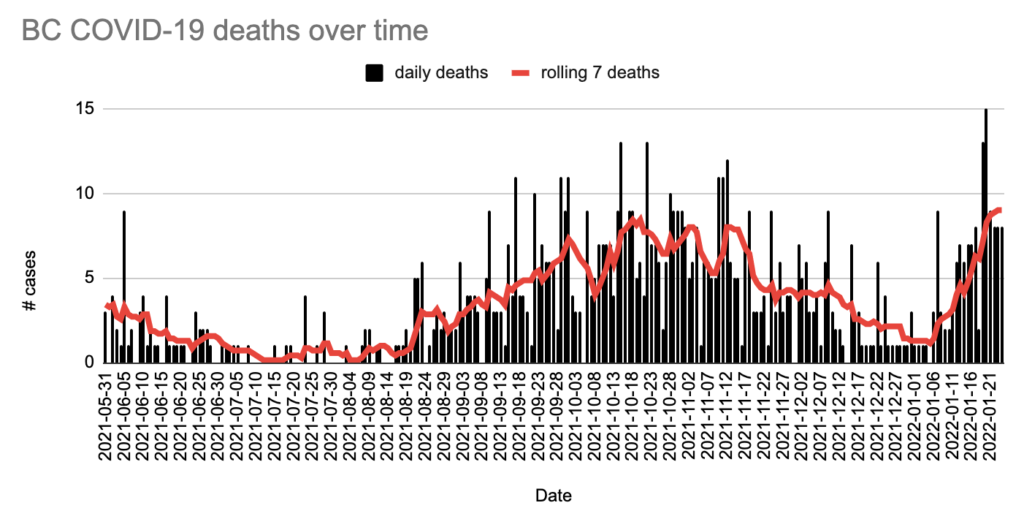Philosophy
This article talks about a (perceived) disconnect between Dr. Henry saying that we need to manage COVID-19 like we do other viruses, but not getting rid of all the mitigation measures. The author says that lots of people have been radicalized, traumatized such that they are COVID-obsessed.
I believe that there is nuance missing. Yes, it is absolutely true that the majority of vaccinated people (who are the vast majority of people in BC) will not die if they get COVID-19.
However, there are a LOT of people for whom it is really dangerous still, and even for “most people” it can be really unpleasant. Thus it makes a certain sense that we ought to ease up on things that only affect “most people” (i.e. go ahead and go back to work when you don’t have symptoms) but still be careful about things that affect the vulnerable (i.e. wear a mask).
Furthermore, something that neither Dr. Henry nor the author of that article talk about a lot is Long COVID. They both seem to be ignoring it as a factor. Dr. Henry has said that we don’t know how bad Long COVID is with Omicron, and that is true. It hasn’t been long enough. (I have a hunch and a hope that neurological effects will be milder (because there is less chance of losing your sense of smell), but I realize that’s mostly hope.) That changes the calculus. I, for one, really don’t want to get Long COVID.
Transmission
On Friday, I talked about how sewers and storm drains used separate pipes. Several people pointed out that while that might be true in some other places I have lived, and it is mostly true in Vancouver now, it is not completely true. There is a big project going on in the City of Vancouver right now to separate the sewers, in fact.
However, the City of Richmond does have separated sewer pipes and storm drains.
So it is in possible that heavy rains would mess with the concentration of COVID-19 in the wastewater in Vancouver (which would show up at the Iona Island treatment plant) but not in Richmond (which would show up at the Lulu Island plant). Aaaand the Richmond plant shows a big fall at the start of January, just like the other plants:

As a double-check, I also took a look at rainfall for Vancouver, and in the first week of January, there wasn’t a huge amount of rain:

There was a heavy-ish rainfall on 11 Jan 2022, but I don’t think the wastewater graph goes up to 11 Jan 2022.
Another way to see how rainfall affects the wastewater surveillance is to look at what happened with heavy rainfall in the past. Here’s rainfall going back far enough to see the rainfall associated with the massive floods in November:

Here’s a wastewater surveillance graph from December, long enough ago that the vertical scale is more reasonable for that time period:

I don’t know about you, but I don’t see a big effect from the massive, massive storms. So I don’t think the small rains in the first week of January could have caused the big fall in COVID-19 levels then.
One of my loyal readers pointed out that snowmelt could also be a problem where storm drains can leak into sewers. However, in the first week of January, it was slightly colder than the weeks before:

This article reports that some hospitals in BC will now bunk vaccinated COVID-negative people with COVID-positive people. I want to believe that’s mostly because of how hard hospitals are getting slammed.
Mitigation Measures
This article says that a petition by UBC and SFU students requesting stricter mitigation measures before classes open on Monday got 100,000 signatures.
Humour
This article is satire.
Statistics
- Fri/Sat: +2,163 cases
- Sat/Sun: +1,489 cases
- Sun/Mon: +1,345 cases
Over the weekend, approximately +8 deaths, +2,718 first doses, +1,190 second doses, +40,312 other doses per day.
Currently 987 in hospital / 129 in ICU, 31,822 active cases, 276,529 recovered.
| first doses | second doses | third doses | |
| of adults | 92.9% | 90.3% | 43.3% |
| of over-12s | 92.6% | 89.9% | 40.4% |
| of over-5s | 89.6% | 83.6% | * |
| of all BCers | 87.2% | 81.3% | 36.8% |
Charts
From this Twitter thread:







